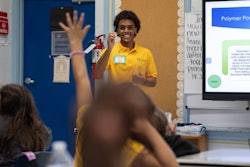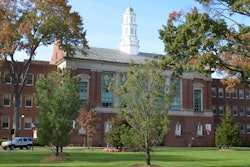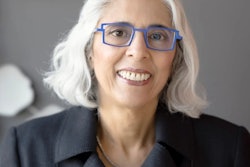AUSTIN, Texas
A Mexican-American pediatric surgeon is the nation’s first Hispanic to preside over a major university system when Dr. Francisco Cigarroa takes the helm at the University of Texas System, which faces financial woes and complaints about diversity.
Cigarroa, a 51-year-old pediatric transplant surgeon from Laredo, looks at his new job as the system’s new chancellor as an opportunity to exceed expectations.
“Challenges really don’t dissuade me from pursuing important opportunities,” said Cigarroa, who started his new job on Monday. “If you’re an optimist, you see opportunities, and that’s the way I’ve been brought up.”
Cigarroa, as the chief executive officer of the UT System, will help administer an $11.5 billion operating budget and preside over 15 campuses with more than 194,000 students.
He faces complaints about soaring tuition costs, a growing battle over admissions policies and a hurricane-ravaged medical school and health center in Galveston.
To address those issues, the outgoing president of the UT Health Sciences Center in San Antonio will have to enter an arena far dicier than medicine: politics. The state Legislature granted school officials the power to raise tuition rates in 2003, but has been pressuring the school system to stop increases.
Cigarroa has refused to specify his views on tuition restraints but said school officials and legislators have to work together to resolve the issue.
He’s more passionate about the prospect of changing admissions policies, which currently dictate automatic entry to state universities for students who graduate in the top 10 percent of their high school class.
UT wants the policy relaxed so it can have more say about who gets in the door. At UT-Austin, more than 80 percent of the Texas freshmen gained admission though the top 10 percent provision.
Cigarroa said the system could keep or even increase diversity in the student body even if the top 10 percent law is modified or eliminated.
“I think we can find an appropriate balance where universities not only look at the top 10 percent, but they also look at those wonderfully competitive students who may have not made the top 10 percent but have done something incredibly special,” Cigarroa said.
Cigarroa also must deal with the future of the University of Texas Medical Branch in Galveston, which suffered $1 billion in damage from Hurricane Ike.
Cigarroa said revitalizing the facility would be a top priority but he couldn’t say what its “appropriate size” would be.
One of nine children born to a doctor and a disciplinarian mother in Laredo, Cigarroa recalls a childhood filled with trips to his grandparents across the border in Nuevo Laredo, Mexico. He frequently visits his mother-in-law there.
The Yale graduate received his medical degree, with highest honors, from UT Southwestern Medical Center in Dallas. His surgical prowess has earned him the nickname “manos de oro,” or “golden hands.”
State Sen. Judith Zaffirini, D-Laredo, a longtime family friend, called Cigarroa a “true renaissance man” who represented the changing demographics of Texas.
“Imagine the kind of role model he’ll be for young students,” she said. “Imagine how many parents will look at him proudly.”
© Copyright 2005 by DiverseEducation.com


















